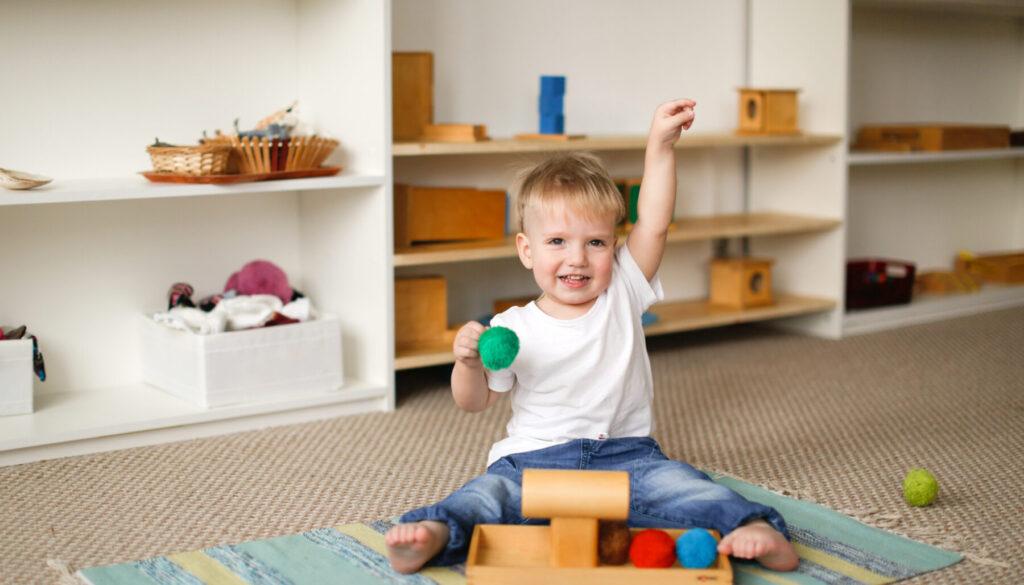Encouraging Independence

Parents need to recognize that it’s okay for children to experience moments of boredom and to have unstructured time for independent play and exploration. Allowing children to engage in self-directed activities can foster creativity, independence, and problem-solving skills. Finding a balance between structured activities and free play is key to supporting a child’s healthy development while alleviating pressure on parents to entertain their child constantly.
Here are some strategies to foster independent play in young children:
- Create a safe and child-friendly play environment that encourages exploration and discovery. Offer a variety of age-appropriate toys, books, and materials that spark curiosity and imagination.
- Avoid overwhelming your child with too many toys at once. Instead, rotate toys regularly to keep their interest fresh and prevent boredom. Store some toys out of sight and periodically swap them to maintain novelty.
- Designate specific areas in your home where your child can play independently. Make these spaces comfortable, well-lit, and inviting, with easy access to toys and materials. Set up play stations for different activities, such as art, pretend play or building blocks.
- Model independent play yourself. Sit nearby and engage in a quiet activity, such as reading or working on a puzzle, while allowing your child to play independently. Your child may be likelier to follow your lead and feel comfortable playing independently.
- Create a predictable daily routine that includes dedicated periods of independent play. Consistency helps children know what to expect and can make them more receptive to engaging in solo playtime.
- Offer toys and activities that promote self-directed play and exploration, such as open-ended toys like blocks, puzzles, art supplies, and dress-up clothes. These activities allow children to use their creativity and problem-solving skills without constant adult supervision.
- Praise and encourage your child’s efforts to play independently. Offer specific praise for their accomplishments and efforts, such as completing a puzzle or building a tower. Positive reinforcement can boost their confidence and motivation to engage in independent play.
- Be patient and understanding as your child learns to play independently. It’s normal for young children to seek reassurance and attention from adults, especially when they’re learning to navigate the world independently. Offer gentle encouragement and support as they build confidence in their abilities.
By implementing these strategies consistently, you can help your toddler develop the skills and confidence to engage in independent play, fostering their creativity, independence, and self-reliance.





